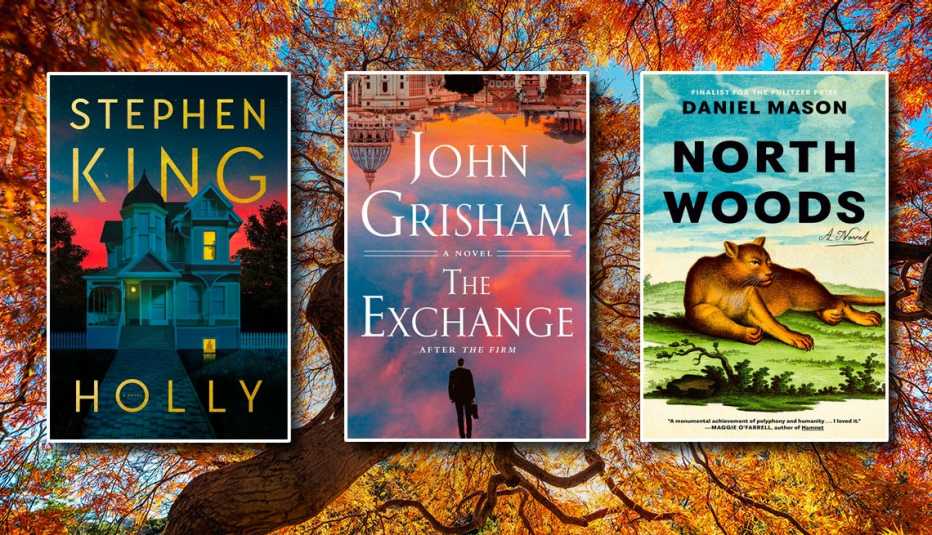AARP Hearing Center


Fall is always rich with wonderful fiction — a wave of new releases arrives with the colder weather, then slows to a trickle in December, when the gift books and self-help guides start their rise. And this season brings some spectacular new novels, including, in September, my two favorites of the year (so far): Wellness by Nathan Hill and North Woods by Daniel Mason. Both are totally absorbing, brilliantly written stories. If and when you get a chance to check them out — or if you have your own suggestions for fall reading — please offer your thoughts in the comments section below.
These 26 books are just some highlights among the many worthy works of fiction coming in the next few months.
Literary fiction
First up is The Fraud by Zadie Smith (September 5), the British author of the bestselling 2000 novel White Teeth. Its various storylines include one focused on a legal trial that in real life riveted Victorian England involving an Australian butcher — possibly an impostor — who claimed to be the rightful heir to a wealthy British estate.
In The Vaster Wilds (September 12), the always captivating Lauren Groff (2015's Fates and Furies, in particular) turns to meticulously researched historical fiction with a gripping story about a girl who exchanges starvation and violence in the 17th-century colonial settlement of Jamestown, Virginia, for the trials of surviving alone in the wilderness.
As noted above, one of my faves of the season so far is Wellness by Nathan Hill (September 19), about a couple, Jack and Elizabeth, who meet in Chicago and fall wildly in love … then out of love when we revisit them as parents and at a point of middle-age exhaustion and disenchantment. It ends up being a thoughtful, often humorous, cultural critique and exploration of why we believe the things we do, why we love who and what we love and so much more.
North Woods by Daniel Mason (September 19) is another must-read, with a unique premise, wonderfully executed. It’s the story of one house in Western Massachusetts and its various inhabitants, from the pre-Colonial era to modern times. The past ends up haunting (sometimes literally) the people who cycle through the home, including the twin daughters of an apple farmer and a man with mental illness who can perceive the ghosts that still live in his midst. Mason also offers rich, evocative depictions of the changing wooded landscape, which evolves along with the humans it harbors.
The Armor of Light by Ken Follett (September 26) is the fifth and final book in the author’s epic series that spans the last thousand years. This one is set in Europe during the Industrial Revolution.





































































More From AARP
Streisand and Winkler Among the Celebs With Big Memoirs Out This Fall
Top Hollywood stars and music legends describe love, pain and dreams dashed and fulfilled on their roads to fame8 New Audiobooks for Summer
Great listens for long walks, road trips — or whatever floats your boat7 Fantastic Under-the-Radar Books You Need to Read Now
A look back at some of our favorite novels and nonfiction from the past five years